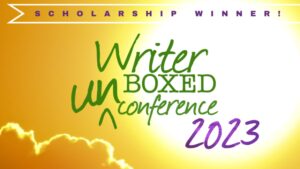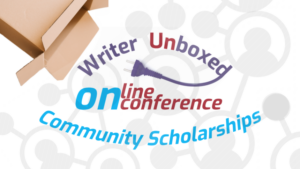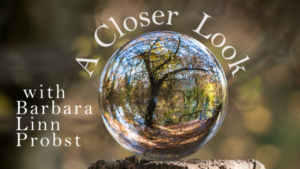Contest
Writers often ask me why, with all of Writer Beware’s warnings about bad actors in the publishing world, we don’t also provide recommendations or endorsements of the good guys. “You’ve got this gigantic list of scammers on your blog; wouldn’t it also be helpful to recommend reputable agents and publishers?”
There are several reasons why we don’t do this.
Writer Beware has a very specific purpose: to document and expose schemes, scams, and pitfalls that target writers, and to educate authors on how to recognize and avoid them. As far as we know, we’re the only organization with this exclusive mission. In other words, we aren’t a general-purpose resource: we are quite narrowly focused. We are also a small, all-volunteer team, with limited time and resources.
Also, one size does not fit all. Agents, publishers, etc. have widely varying areas of interest and expertise, and the best agent or publisher or freelance editor or cover designer for one writer might be the worst choice for another. Lists of “good guys” won’t necessarily be very useful, depending on what you write and what your publishing goals are (not to mention, they are incredibly time-consuming and research-intensive to compile and maintain; did I mention that Writer Beware is a small team?). It really is better for writers to do their own research and vetting, armed against scams and bad practice with the tools and knowledge Writer Beware provides.
Finally, recommending or endorsing any particular publishers, agents, etc. risks raising questions of conflict of interest. How do you know, one of Writer Beware’s many haters might inquire, that the agents on that “good guy” list didn’t pay to be there? Of course this would not be true—Writer Beware doesn’t even accept charitable donations—but we want to avoid all possibility of such questions arising. (This is why, when scammers want to discredit us, they have to make stuff up—such as that I own my own publishing company and am badmouthing competitors).
So I can’t suggest which agents to query, which publishers to approach, which self-publishing platforms to consider. What I can do is try to cut through some of the fog and noise of the internet by recommending reliable resources to help with your publication journey. The internet is a goldmine of information for authors, but it is also a swamp of fake facts, bad advice, and scams—and it can be very difficult to figure out which websites are reliable and which experts are actually experts.
Following are a few of my favorite online resources. Some you’ll no doubt already be familiar with, but hopefully you’ll also discover something new. (And of course Writer Unboxed would be on the list, if I weren’t already here!) Most of the resources are free, but some require subscription or a membership fee. Writer Beware receives no consideration or compensation for mentioning them.
GENERAL RESOURCES
The Writer Beware Website. http://www.writerbeware.com/ The Writer Beware blog is WB’s most high-profile online presence, but many people don’t realize that we’re also a very large website. While the blog covers scams and publishing industry issues in real time, the website is a resource for general advice and warnings, designed to empower writers to recognize and protect themselves from schemes and […]
Read MoreImage – Getty iStockphoto: Elina L
Nonfiction, and the Impact of Awards
Three years ago in November, I was writing here at Writer Unboxed about how this time of year is “the publishing-award equivalent of what zodiacal scholars sometimes call the ‘Mercury storm.’ At this time each year, a multitude of awards programs, national and international, reach their winner announcements.” And that has only intensified since 2020, with new awards and the clamor for coverage rising.
There’s a new development here, however, and I wanted to share it with you because it might begin to boost the value of key prizes if it’s adopted by the organizers of more award programs.
You may have been aware that the Booker Prize Foundation in London – which annually produces both the Booker Prize for Fiction and the International Booker Prize for a translated work – has begun to report to the news media the market impact its top honor can have on a book’s unit sales. After an interval of some weeks, the program begins to lay out to such details.
As an example, the 2022 Booker Prize for Fiction winner, Sri Lankan-born Shehan Karunatilaka, who won for his The Seven Moons of Maali Almeida, had a threefold increase in media coverage when longlisted for the Booker. That level of coverage then tripled again, the Booker reported, when the book was shortlisted.
“With the announcement that it was the Booker Prize winner,” the foundation says, “sales soared to more than 100,000 across all formats. It now has been translated into 19 languages with another 10 [rights sales and/or translations] in process. The Seven Moons of Maali Almeida has massively outsold—by 2,000 percent—Karunatilaka’s previously acclaimed and prizewinning novel, Chinaman (Penguin Random House / Jonathan Cape, 2012).”
This kind of information is seriously helpful.
While the majority of book- and publishing-award coverage that we at Publishing Perspectives in our international purview is based in the United Kingdom, the general trend everywhere is to accept awards attention as helpful to sales – but normally without publicly demonstrated evidence of this. The lure of the “golden sticker” is clear, of course. In a bookstore setting and online, the ubiquitous sticker on a book cover is believed to grab the eye of a consumer who may be swayed to buy that stickered book over one without evidence of such honors.
In fact, however, until the advent of the Booker’s information on its £50,000 prize winners’ unit sales, press runs, rights sales, and news-media attention, the market value of awards was actually something many if not most of us took as evident.
Proof in Another Pudding
Provocations graphic by Liam Walsh
Operating alongside the major fiction awards like the Booker’s program are, of course, major nonfiction prizes as well. And last week, there was a breakthrough in that arena: the £50,000 Baillie Gifford Prize in nonfiction’s newly undertaken market-impact reporting.
As we reported, the program worked with Nielsen to get a look at the four weeks prior to and after the naming of its top award. […]
Read MoreTherese here to announce the winner of this year’s Writer Unboxed UnConference scholarship! But first I have to tell you that the quality of submissions was better than ever. If you applied, please know the competition was fierce — and fantastic.
Without further ado, the winner of a free ticket to the 2023 UnConference plus a stipend of $911 is Kristin South!
The applicant in second place has also been offered a free ticket to the conference. Congratulations, Elizabeth Wood!
“Final-four” finalists Lisa Bodenheim and Caitlin Cacciatore were both offered heavily discounted event tickets.
Thank you to everyone who donated to the stipend. You’ll all be recognized in this year’s WU UnConference program.
And thank you to all who applied for sending in such wonderful essays and sample pages. You made our job difficult, and we couldn’t be gladder for it.
You can learn more about this year’s in-person event on Eventbrite, HERE.
Write on!
Read MoreThis contest submissions season covers deadlines from December 1, 2022 through February 28, 2023. Thanks to Literistic, Poets & Writers, Submittable Discover, and New Pages for many of these contests.
Much like editors are looking for reasons to reject work, I want to focus on opportunities worth my time. Thus, my list of writing contests below includes reasons to submit to that particular writing contest. May you find a promising opportunity among this list and spend less time searching for where to send your exceptional work.
A writing community can take many forms, from an established website like Writer Unboxed, to an online group you participate with over Facebook or Discord, to an in-person group you meet up with monthly at a local library, to a critique partner you rely upon who lives on the other side of the world. And that’s just a start.
This year’s OnConference was built to honor COMMUNITY, pushing beyond the traditional online conference experience to provide unique opportunities to connect with one another throughout the event. (Click HERE to learn more about that.) Beyond the community activities we have planned for our 3-week event, our community lounge will stay open for 4 full months, allowing you to gather for writing-related activities through the end of 2022.
All to say that we understand how important community can be to a writer’s life; it can not only help you to persevere in the writing craft, but can help you to be a better writer overall. It has done just that for so many of us.
So it makes sense that this year’s scholarship opportunity be about community as well.
Who should apply?
If you’re interested in an OnConference focused on deep craft and community-centric extras–
If you, too, know the value of a writing community and would like to forge new connections through this event–
If you might not otherwise be able to participate in this year’s OnConference but are seriously interested–
then we hope you’ll consider applying for WU’s Community Scholarship.
How to enter:
Please send the following to unconference@writerunboxed.com:
Optional:
Application deadline for this scholarship is Wednesday, August 31st.
Don’t be shy! If you value community and would like to participate in the upcoming OnConference, we’d love to hear from you.
WU Community: How have others supported you, helped to evolve your craft, and kept you inspired? Even if you are not applying for the scholarship, we’d love to hear from you in comments.
Read MoreThis contest submissions season covers deadlines from September 1, 2022 through November 30, 2022. Thanks to Literistic, Poets & Writers, Submittable Discover, and New Pages for many of these contests.
Much like editors are looking for reasons to reject work, I want to focus on opportunities worth my time. Thus, my list of writing contests below includes reasons to submit to that particular writing contest. May you find a promising opportunity among this list and spend less time searching for where to send your exceptional work.
Read More

















